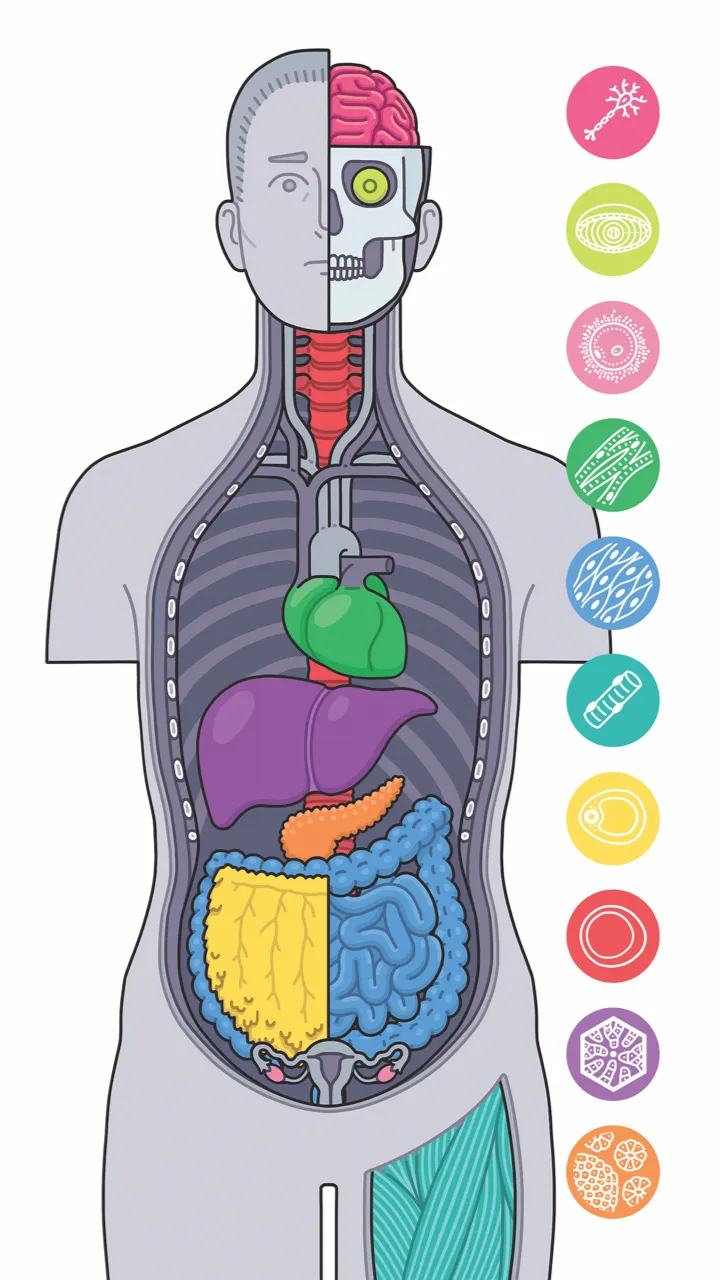On average, the cells in your body are replaced every 7 to 10 years. But those numbers hide a huge variability in lifespan across the different organs of the body.
Neutrophil cells (a type of white blood cell) might only last two days, while the cells in the middle of your eye lenses will last your entire life.
And it’s even possible that your brain cells might have longer maximum lifespans than you do. In 2013, researchers transplanted neurons from old mice into the brains of longer-lived rats and found that the cells were still healthy after living for two whole mouse lifespans!

Brain cells: 200+ years?
Eye lens cells: Lifetime
Egg cells: 50 years
Heart muscle cells: 40 years
Intestinal cells (excluding lining): 15.9 years
Skeletal muscle cells: 15.1 years
Fat cells: 8 years
Hematopoietic stem cells: 5 years
Liver cells: 10-16 months
Pancreas cells: 1 year
Read more:
Subscribe to BBC Focus magazine for fascinating new Q&As every month and follow @sciencefocusQA on Twitter for your daily dose of fun science facts.